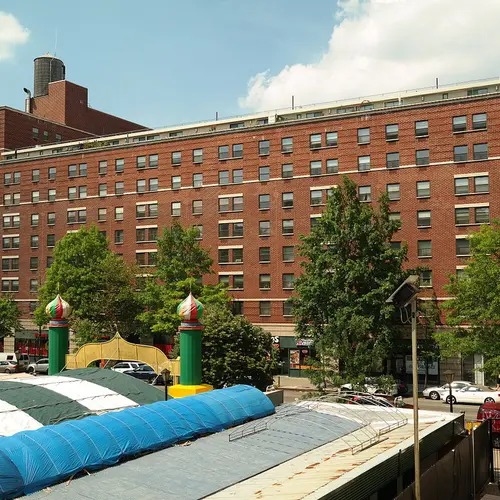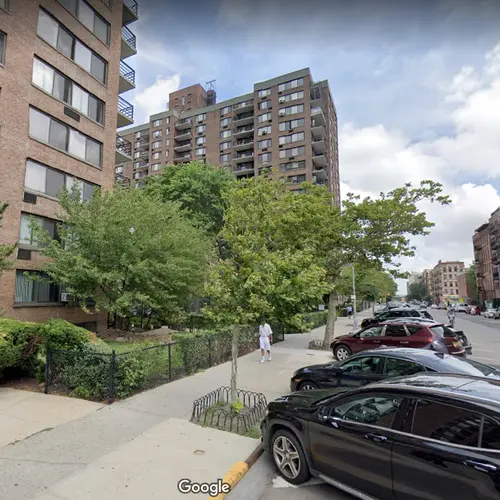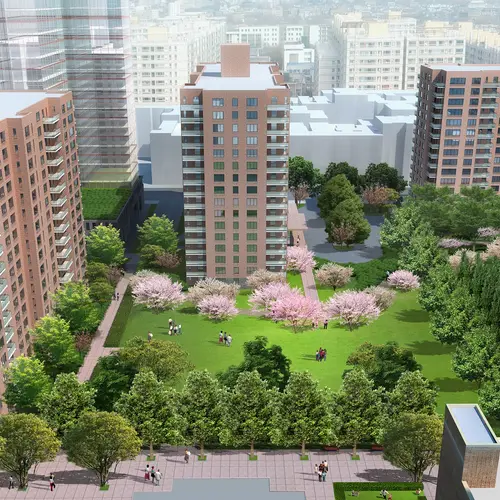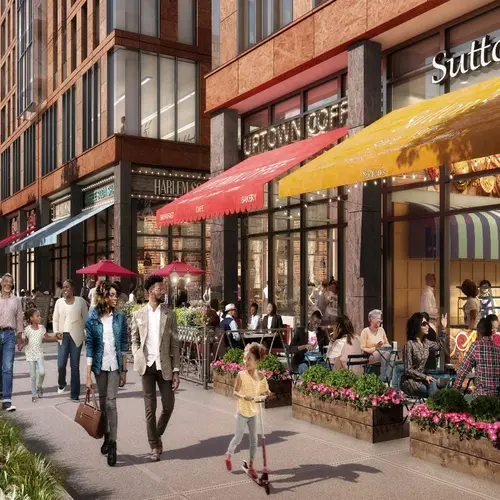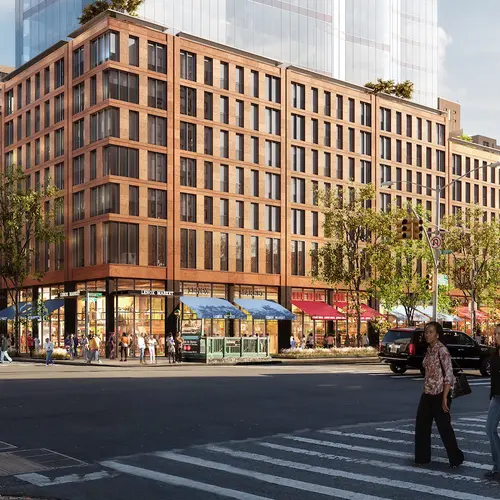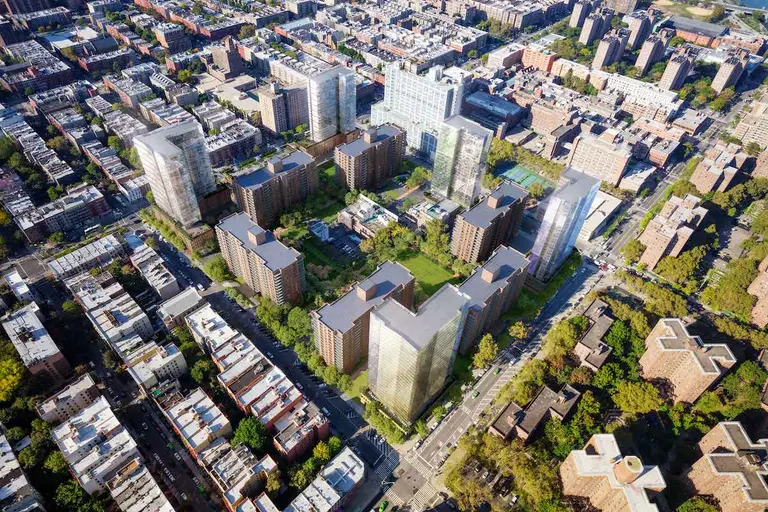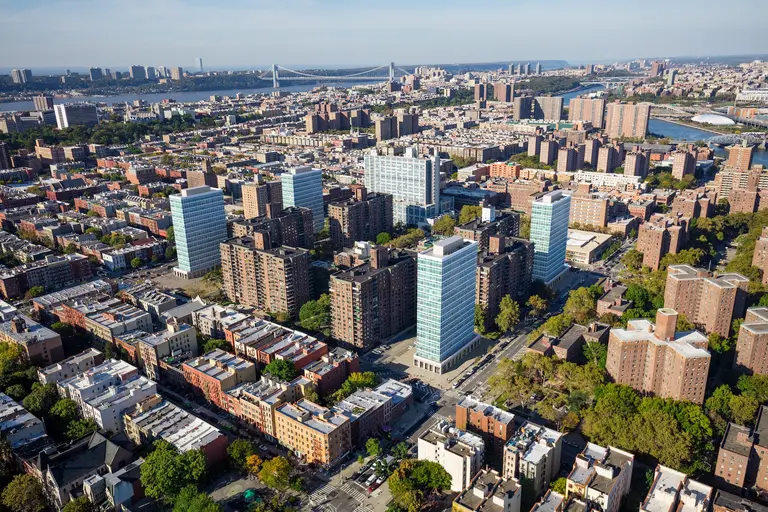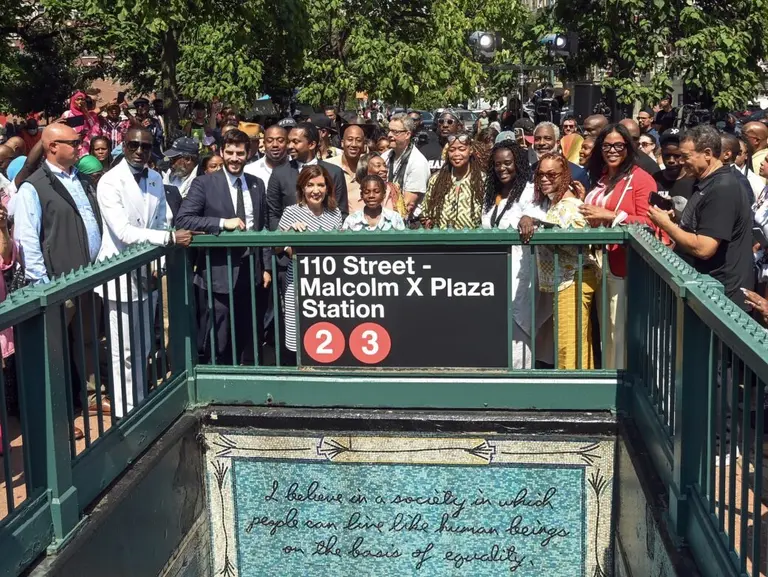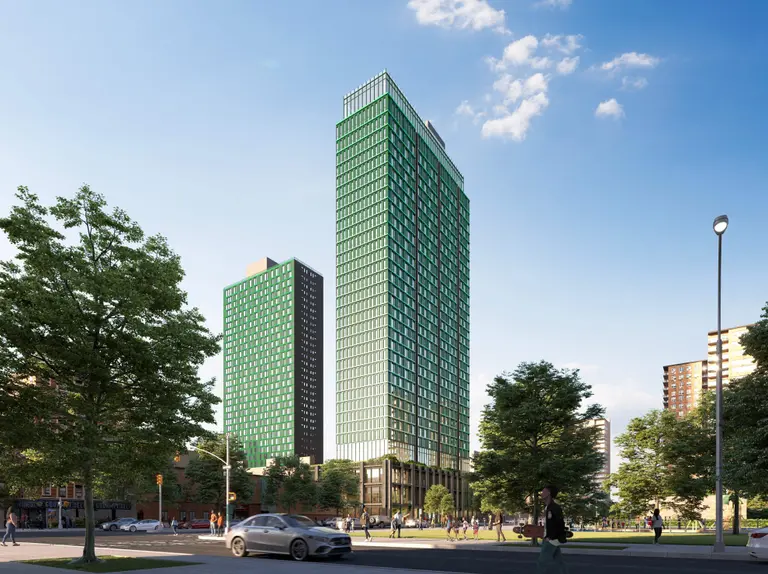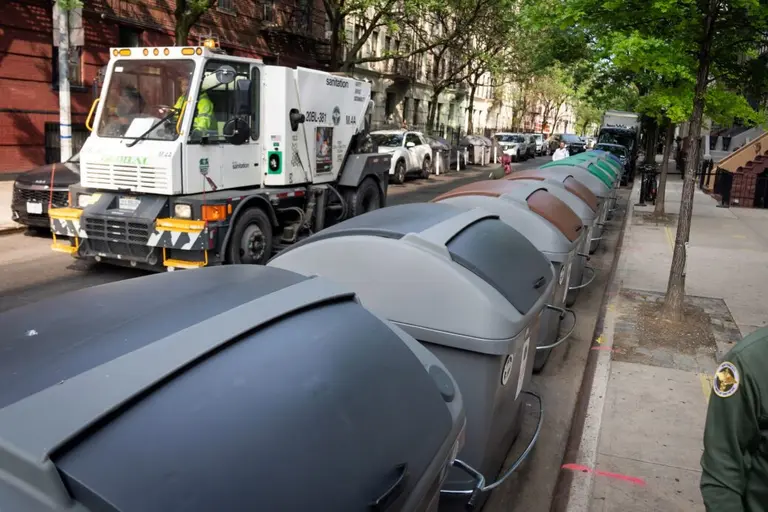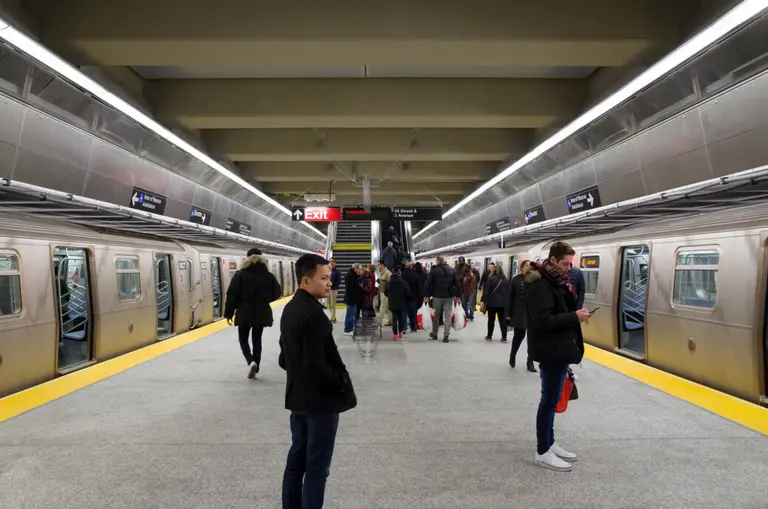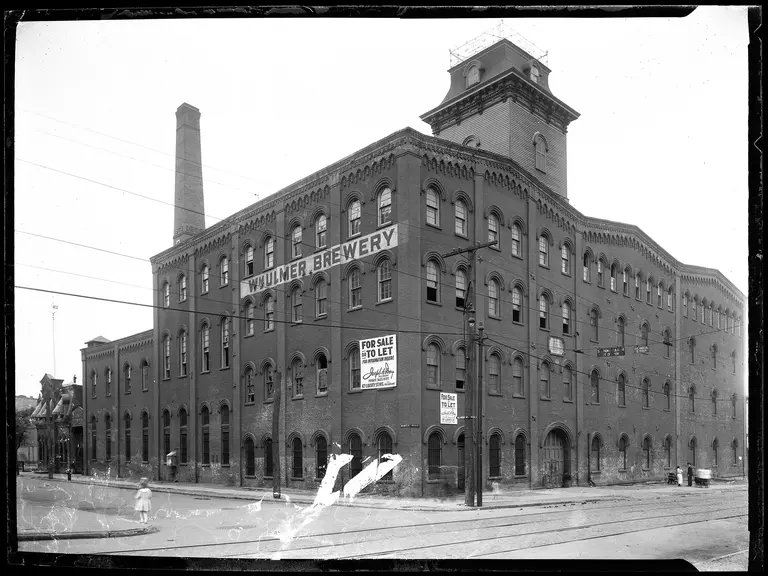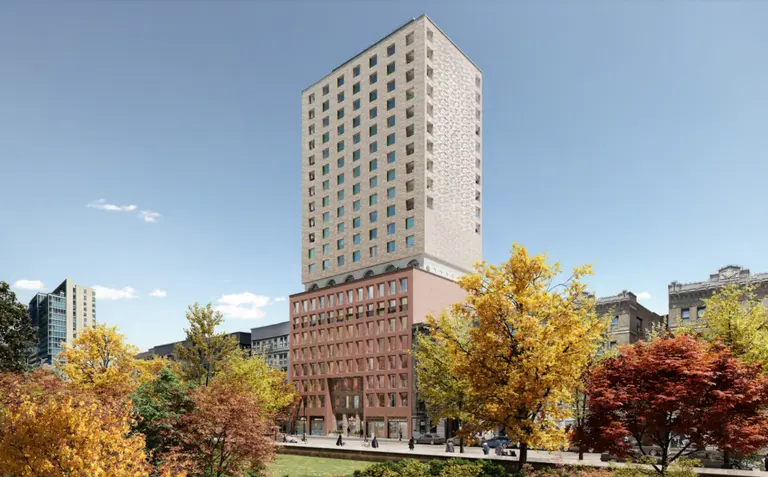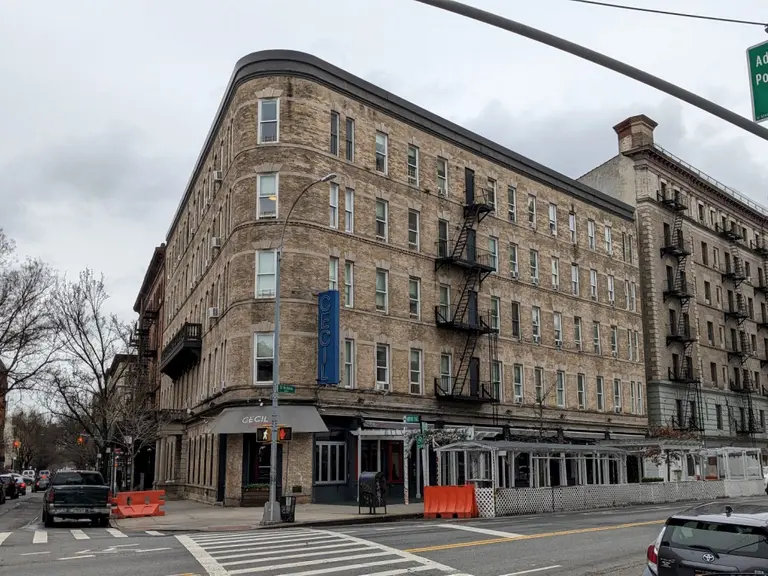Manhattan community board says no to Central Harlem developer’s rezoning plan
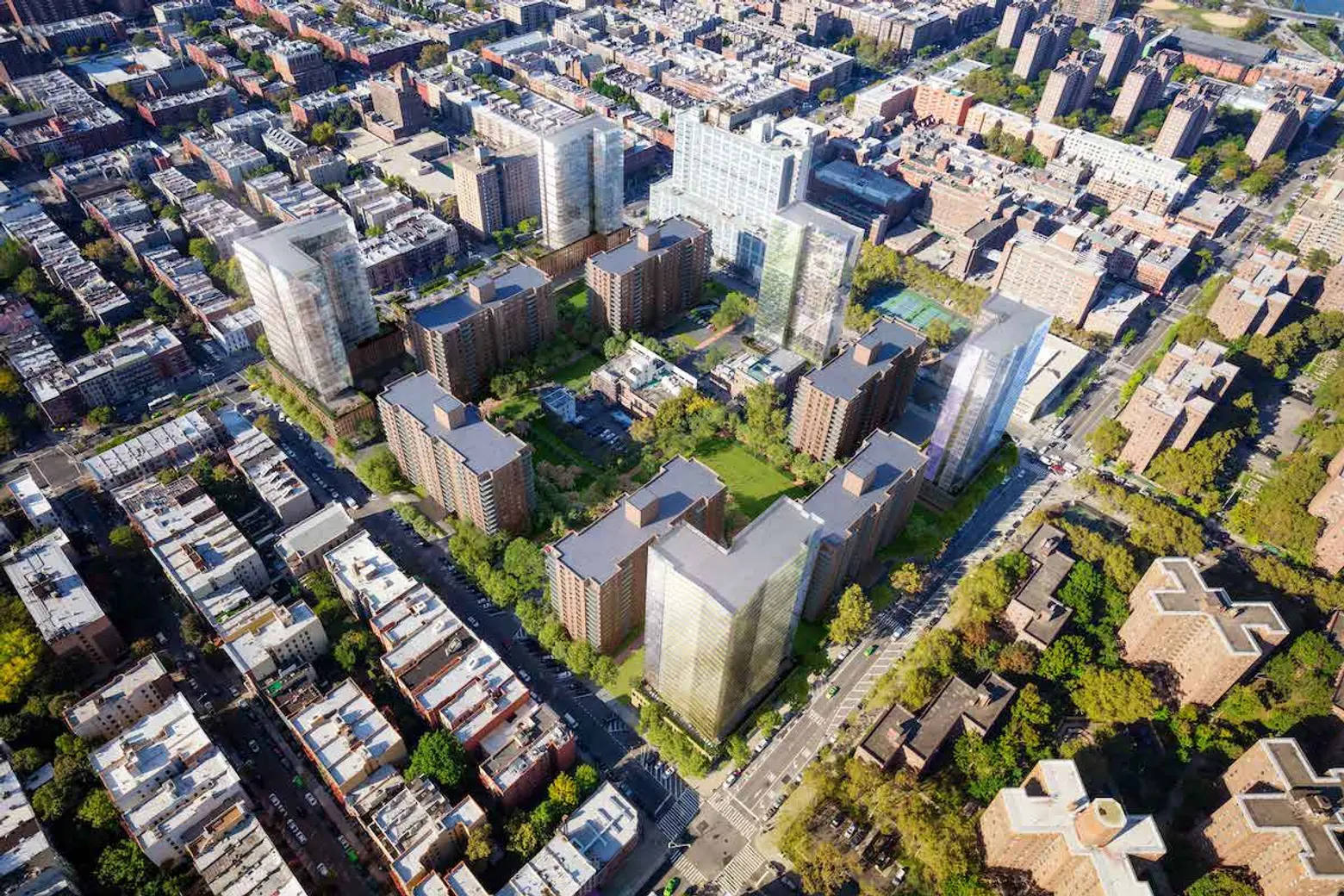
Aerial view of the developer’s planned updates. Credit: Davis Brody Bond
Manhattan Community Board 10 voted Wednesday night against a developer’s plan that would substantially rezone the Lenox Terrace neighborhood in Central Harlem and pave the way for construction of five new 28-story luxury towers and big-box retail stores. The rezoning application, filed by the Olnick Organization, asked the city to rezone Lenox Terrace from its current residential status to the C6-2 designation found in “the central business district and regional commercial centers,” according to the city’s zoning resolution. The community board’s vote sided with the Lenox Terrace Association of Concerned Tenants (LT-ACT), which opposes the rezoning and has demanded the developer withdraw the application.
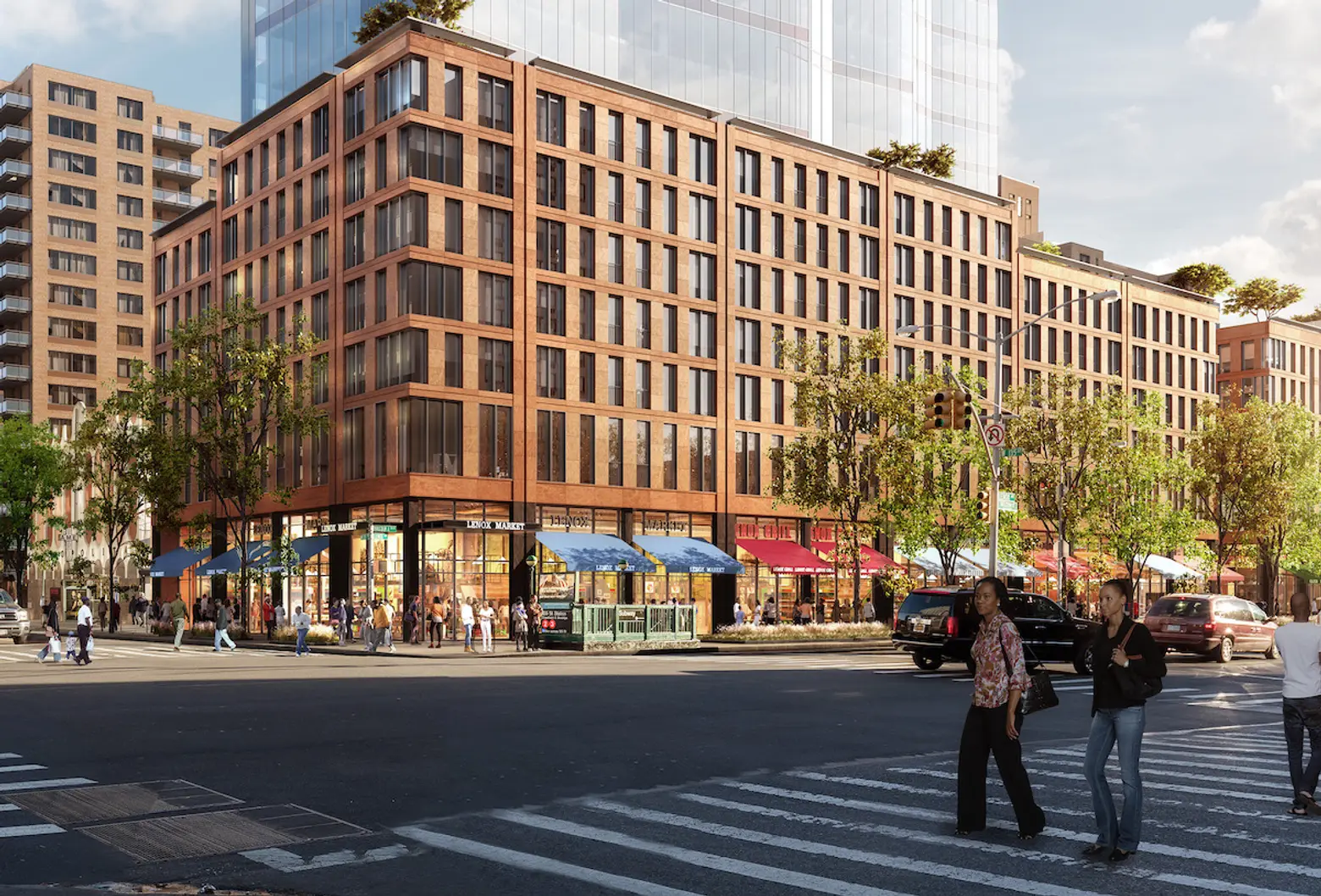
Rendering of proposed retail expansion. Credit: Davis Brody Bond
The developer’s updated plan for Lenox Terrace calls for upgrades to existing buildings, six acres of open space, new building amenities for residents, professionally attended parking below the complex, 1,600 mixed-income apartments including approximately 400 affordable units and new neighborhood-focused retail.
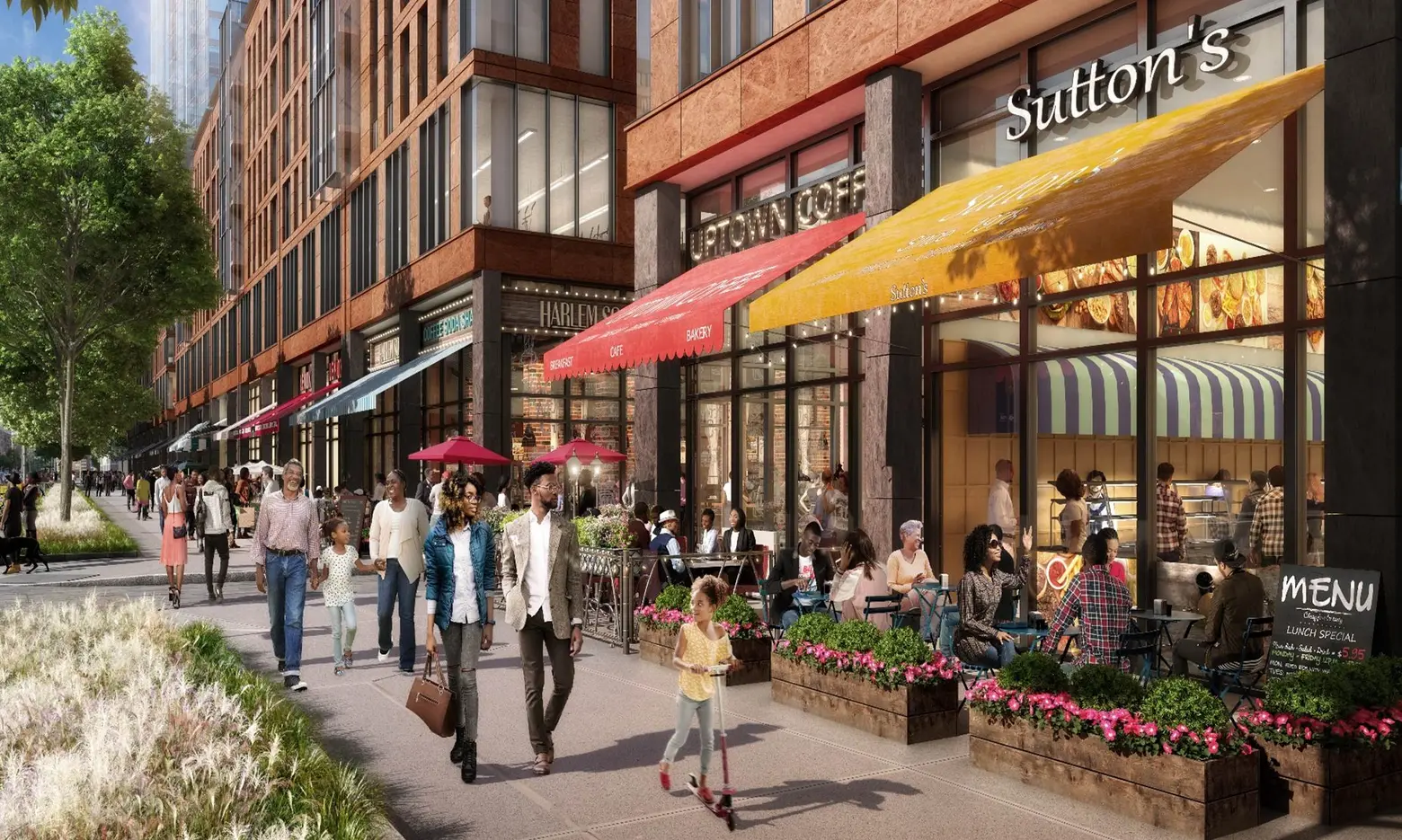
Rendering of proposed retail expansion. Credit: Davis Brody Bond
Daniel Carpenter-Gold, a staff attorney at TakeRoot Justice, which represents LT-ACT, commented that “You don’t see places like Target in the pretty renderings that the developer gave the City but that’s the end goal of this commercial upzoning. Community Board 10 did the right thing in putting the needs of Lenox Terrace and Central Harlem residents ahead of profiteers like Olnick.”
The current residential zoning allows for additional housing within the complex and for small-scale retail and restaurants on three sides of the complex’s perimeter. If the rezoning passed, the new residential towers would more than double the population density in the complex and chain retail stores like Target and Walmart could arrive in the neighborhood for the first time.
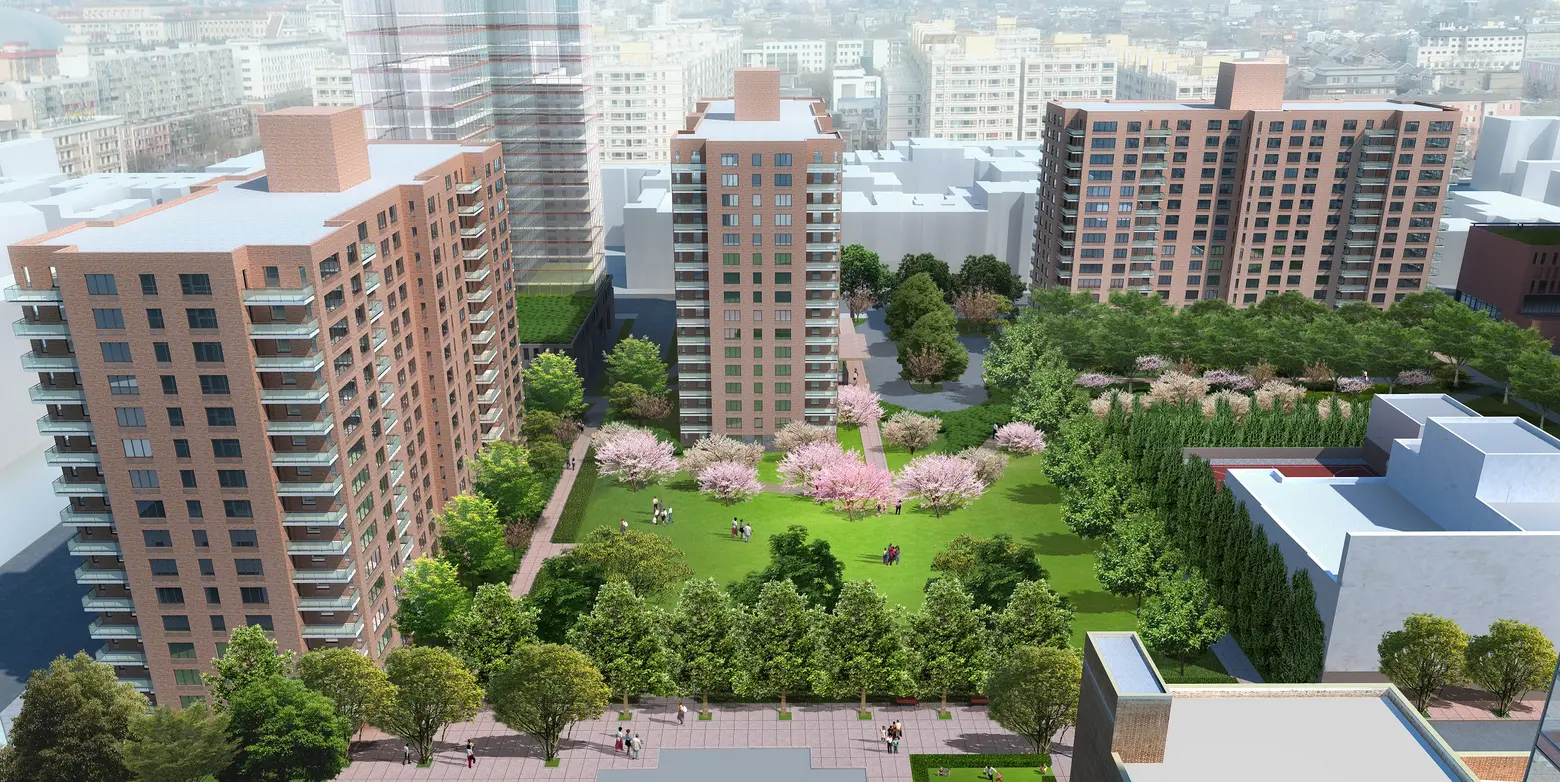
The developer’s proposed project. Credit: Ken Smith Workshop
The community board’s rejection of the rezoning was, in effect, a vote to protect a historic African-American community in Central Harlem–one which has sufficient cultural and historical significance to be eligible for inclusion in the state and national historic registries. Multiple elected officials support LT-ACT including City Council Member Bill Perkins, Public Advocate Jumaane D. Williams, State Senator Brian A. Benjamin, Assemblymember Inez Dickens and former Gov. David A. Paterson.
The vote was 20-15 in a “No, With Conditions” vote in opposition, though according to a statement from the tenants’ association, many of the community board members who voted against the rezoning would have preferred a straight “No” vote without conditions. The “conditions” addressed the reasons for the board’s vote and added conditions for future development on the property, intended to protect tenants and the community.
The resolution also cites a class-action lawsuit by Lenox Terrace tenants against Olnick for illegally removing units from of rent stabilization but still claiming a J-51 tax abatement for affordable housing as well as the organization’s failure to maintain the existing apartments, leading to health hazards like lead contamination in drinking water and friable asbestos in apartment building common areas. Also raised was the specter of seven to ten years of construction that would affect the health of area residents, the concern that more luxury housing would drive up property taxes and rents, and, finally that “any proposed development must protect and celebrate” the culture and history of Lenox Terrace and “support the physical brick and mortar” of the development as it now stands.
The board’s resolution asks Olnick to withdraw its application and resubmit a new plan that does not include the proposed rezoning and to also submit a legally binding and permanent tenants-benefits agreement and community-benefits agreement. The resoultion also requires any new plan to show how concerns raised by the community will be addressed.
Next, the proposal will be reviewed by Manhattan Borough President Gale Brewer, who has 30 days to issue a recommendation. A hearing has been scheduled for Monday, November 18, 2019, at 6:00 PM at the Kennedy Center at 34 West 134th Street; written comments can be sent to [email protected].
RELATED:
- A mecca of African American history and culture, Central Harlem is designated a historic district
- Harlem church’s rezoning proposal includes new tower and music school, but still no developer
- Proposal to rezone strip of Central Park North includes 33-story mixed-use building
- City releases Bushwick rezoning proposal
